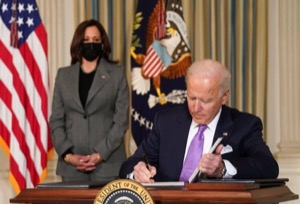Immigration policy has always been a critical and controversial issue in American politics. Not a day goes by when there isn’t some news story dealing with immigration issues. With the transition from the Trump administration to the Biden administration, there has been a significant shift in policies and priorities. In this post, the legal team at BestImmigrationLawyer.com highlights some of the most significant changes in immigration policy under President Biden compared to President Trump.
1. The “Zero Tolerance” Policy
The “Zero Tolerance” policy was one of the signature cornerstones of the Trump administration’s approach to immigration issues. This policy led to the separation of thousands of children from their parents at the United States/Mexico border. Under this controversial policy, persons who crossed the border without inspection or authorization were criminally prosecuted. This resulted in thousands of families being separated. However, upon assuming office, the Biden administration issued an executive order terminating President Trump’s Zero Tolerance policy and created a task force to start reunifying families that had been separated as a result of this policy. President Biden has since stated that he intends to focus on the root causes of migration from Central America and reforming the nation’s asylum process.
 Immigration Lawyer Blog
Immigration Lawyer Blog


 country is also experiencing food shortages, dangerous environmental conditions and other hardships that make life dangerous. In recognition of this, the Secretary of DHS,
country is also experiencing food shortages, dangerous environmental conditions and other hardships that make life dangerous. In recognition of this, the Secretary of DHS, 
